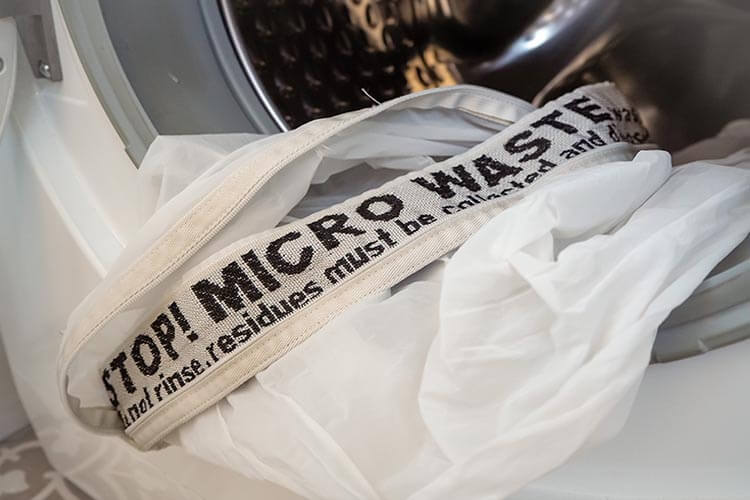
Every time we wash our clothes, plastic microfibres enter the water supply – washing machine filters would minimise the amount.
The Marine Conservation Society has handed a petition to Parliament calling on the UK Government to help prevent plastic fibres from entering the water supply by legally requiring manufacturers to install microfibre filters in all new washing machines from 2024.
Microfibres – those less than 5mm in length – from synthetic textiles have a huge impact on the scale of plastic pollution in the world’s oceans. A 2021 study estimated there may be up to 24.4 trillion pieces of microplastic weighing between 82000 and 578,000 tons in the upper oceans alone; a 2020 2020 Australian study estimated that there may be up to 14 million tonnes of microplastic embedded in the ocean floor.
Repeated studies have found microplastics in the flesh and internal organs of many marine species, causing a variety of problems ranging from malnutrition to the toxic effects of the chemicals used to make the plastics. They make their way into the human food chain through the consumption of seafood and even ordinary drinking water.
It has been estimated that as much as 80 per cent of all marine microplastics found in the water column are microfibres, which in some cases can be worse than plastic particles as fibres can clump together in the guts of marine animals. Many of the fibres that have entered the ocean are the direct result of the washing of synthetic materials such as nylon, polyester, rayon and spandex. Filters fitted inside washing machines can reduce the amount of plastic microfibres released into wastewater by up to 90 per cent.
A Microplastic Filters (Washing Machines) Bill was submitted to Parliament in 2022 by Alberto Costa, Conservative MP for South Leicestershire, which would require all new washing machines on sale in the UK to be fitted with a microplastic fibre capture filter from 2025.
The Bill is supported by a number of cross-party MPs, washing machine filter manufacturers and members of the All-Party Parliamentary Group on Microplastics, including the National Federation of Women’s Institutes.
‘Microfibre-catching technology must be implemented as soon as possible to have the biggest and most immediate impact on microplastic pollution,’ said Laura Foster, Head of Clean Seas at the Marine Conservation Society.
‘We know microfibres from our clothes are one of the biggest contributors to microplastic pollution in our seas. They have dire consequences for marine life – causing digestive problems, hindering nutrient absorption, and introducing toxins into the ecosystem. We have industry and public support; we just need the UK Government to push forward with this Bill.’


